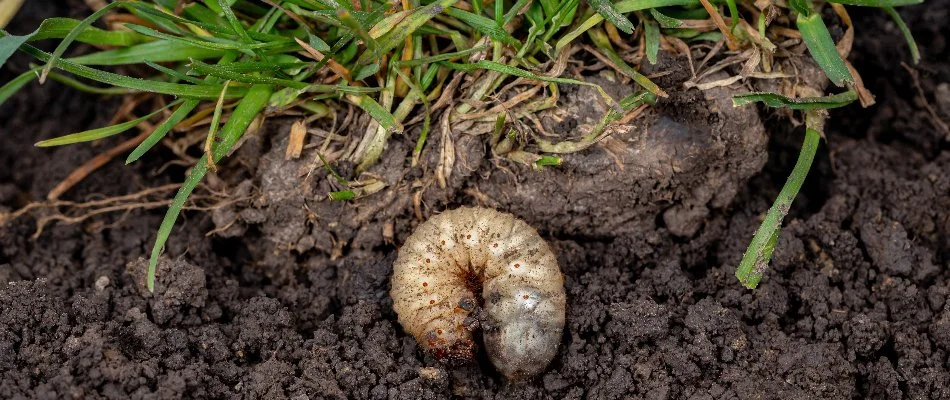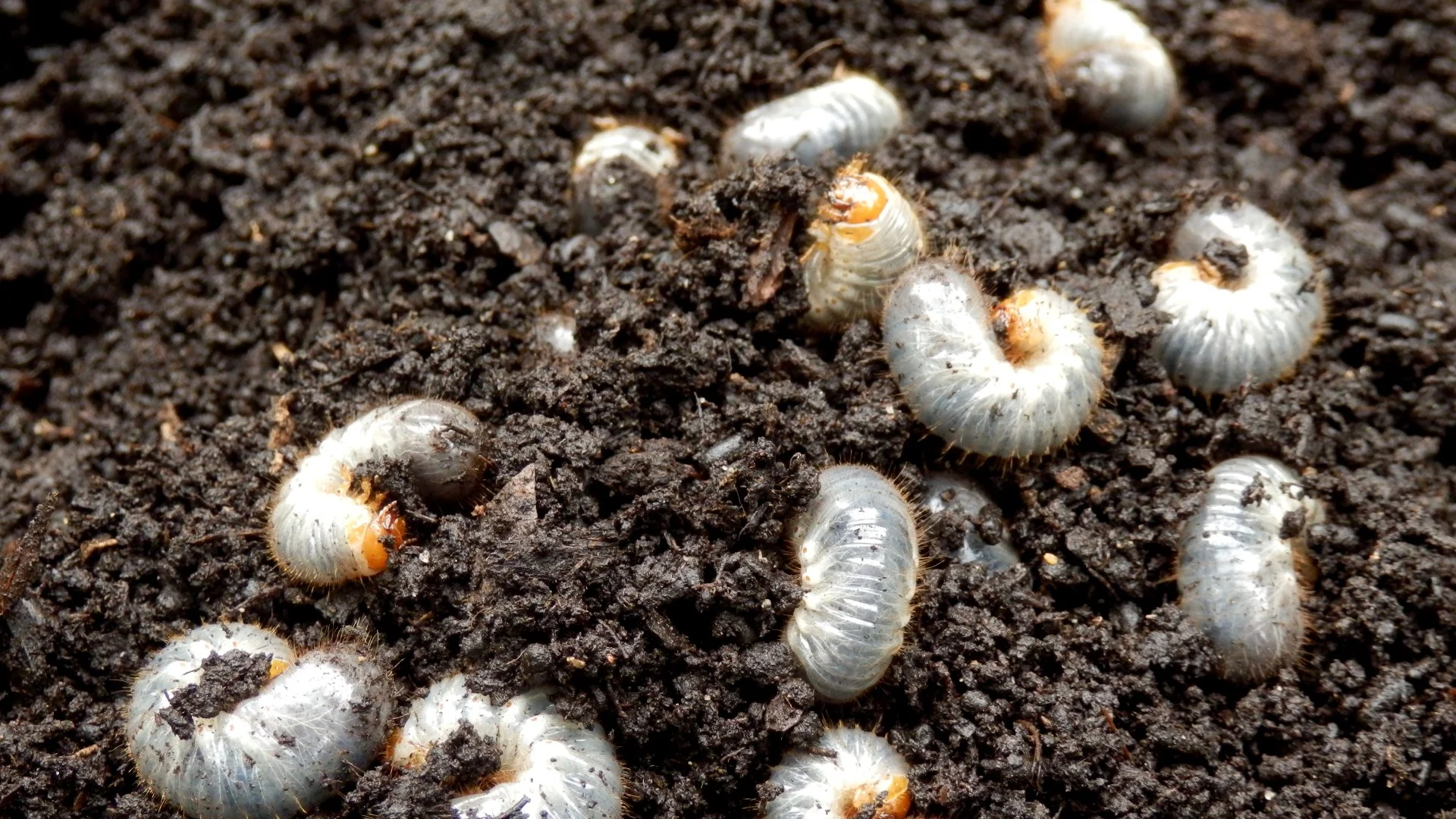Grubs are a common lawn pest in Maryland that can cause significant damage to your turf if left untreated. Fortunately, you can avoid this by scheduling preventative grub control treatments! These treatments work by absorbing into the soil and killing newly hatched grubs before they start feeding on the roots of your grass. The best time to apply them is between May and July, before these pests become active. If you skip preventative measures, however, there's a chance that grubs will infest your lawn, meaning you'll need curative treatments to eliminate them. You may also have to invest in lawn care services to help it recover from any damage.
How do preventative grub control treatments work?

Preventative grub control treatments involve applying insecticides specifically designed to target young grubs. When applied correctly, these products seep into the soil where they come into contact with developing larvae. Once exposed, the chemicals disrupt their growth cycle, preventing further development and ultimately leading to death.
This method works because grub eggs hatch during late spring or early summer and begin searching for roots to eat. By applying this treatment, grubs will be eliminated before they can start feasting, so they won't have a chance to damage the roots of your grass and cause damage to it.
When should preventative grub control treatments be applied?
The ideal window for administering preventative grub control treatments falls between May and July, depending on factors such as climate conditions and location. During this period, temperatures rise steadily, creating favorable environments for egg-laying adult beetles. Applying treatment within this timeframe ensures maximum effectiveness against emerging grubs.
It's important to note that timing plays a crucial role in achieving optimal results with preventative grub control treatments. Administering too early may result in reduced efficacy due to insufficient exposure to developing larvae, whereas waiting until after peak emergence could lead to ineffective results. That's because this type of treatment doesn't work against mature grubs, so if you wait too long to apply it and the grubs have already matured, you won't get the results you're looking for.
What happens if you skip preventative grub control treatments?
If you choose not to take advantage of preventative grub control treatments, you risk exposing your lawn to potentially devastating consequences. Without protection, young grubs will continue to feed on the roots of your grass undetected, weakening its overall health and vigor. As they grow larger, they become more difficult to manage using traditional methods alone.
In addition to compromising the structural integrity of your lawn, unchecked grub infestations attract predators seeking easy prey. Birds, raccoons, skunks, and moles often dig up large sections of turf searching for tasty morsels beneath the surface. This leads to unsightly holes scattered across your landscape, making it less appealing aesthetically.
To combat established grub populations, you would need to schedule curative treatments. However, even then, recovery takes longer compared to implementing preventive measures initially. Moreover, if the damage was significant, you'll also need to invest in lawn care services like fertilization, aeration, and overseeding to help your lawn recover. To avoid all of this, it's best to stay proactive and invest in preventative grub control.
Call us today to sign up for our grub control service!
At Liqua-Grow Turf, both preventative and curative grub control treatments are offered! So, whether you're looking to get ahead of these pests or want to eliminate existing infestations, we can handle it! Our grub control service is offered to property owners in Westminster, Eldersburg, Ellicott City, MD, and surrounding areas. Give us a call at (410) 795-7900 to sign up for this service today!



Comments (0)
Thanks for your comment!
Thanks for your feedback! Your comments have been successfully submitted! Please note, all comments require admin approval prior to display.
Error submitting comment!
There is a problem with your comment, please see below and try again.